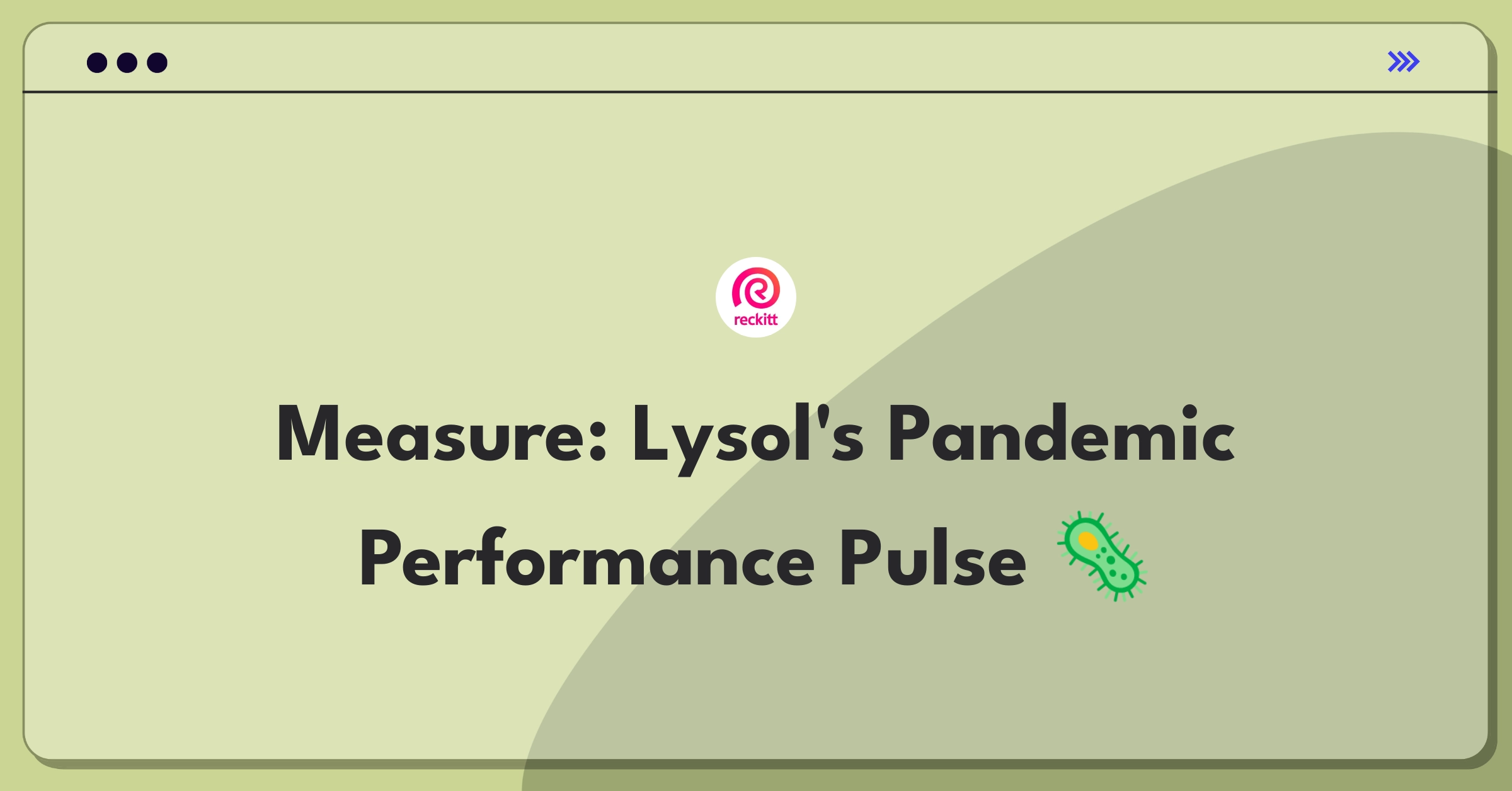Introduction
Defining the success of Lysol disinfectant spray during the COVID-19 pandemic requires a multifaceted approach that considers both immediate impact and long-term sustainability. To address this product success metrics challenge, I'll follow a structured framework covering core metrics, supporting indicators, and risk factors while considering all key stakeholders.
Framework Overview
I'll follow a simple success metrics framework covering product context, success metrics hierarchy.
Step 1
Product Context
Lysol disinfectant spray is a household cleaning product designed to kill 99.9% of viruses and bacteria on hard surfaces. During the COVID-19 pandemic, it gained unprecedented importance as a frontline defense against the virus in homes and businesses.
Key stakeholders include:
- Consumers: Seeking protection and peace of mind
- Retailers: Managing inventory and meeting demand
- Healthcare institutions: Relying on effective disinfection
- Reckitt (parent company): Balancing profit with social responsibility
User flow:
- Purchase: Consumers buy the product from retailers or online platforms
- Application: Users spray surfaces following instructions on the label
- Effectiveness: The product kills viruses and bacteria, providing protection
Reckitt's broader strategy likely involves leveraging the Lysol brand's newfound prominence to strengthen its position in the home care market. Competitors like Clorox and store brands also saw increased demand, but Lysol's established reputation gave it an edge.
Product Lifecycle Stage: Mature product experiencing rapid growth due to external factors.
Physical Product Considerations:
- Distribution channels: Primarily through retail stores and e-commerce
- Shelf-life: Typically 2 years, but increased turnover during pandemic
- Retail model: High-volume, essential item status in most stores
Subscribe to access the full answer
Monthly Plan
The perfect plan for PMs who are in the final leg of their interview preparation
$99.00 /month
- Access to 8,000+ PM Questions
- 10 AI resume reviews credits
- Access to company guides
- Basic email support
- Access to community Q&A
Yearly Plan
The ultimate plan for aspiring PMs, SPMs and those preparing for big-tech
- Everything in monthly plan
- Priority queue for AI resume review
- Monthly/Weekly newsletters
- Access to premium features
- Priority response to requested question


.png)